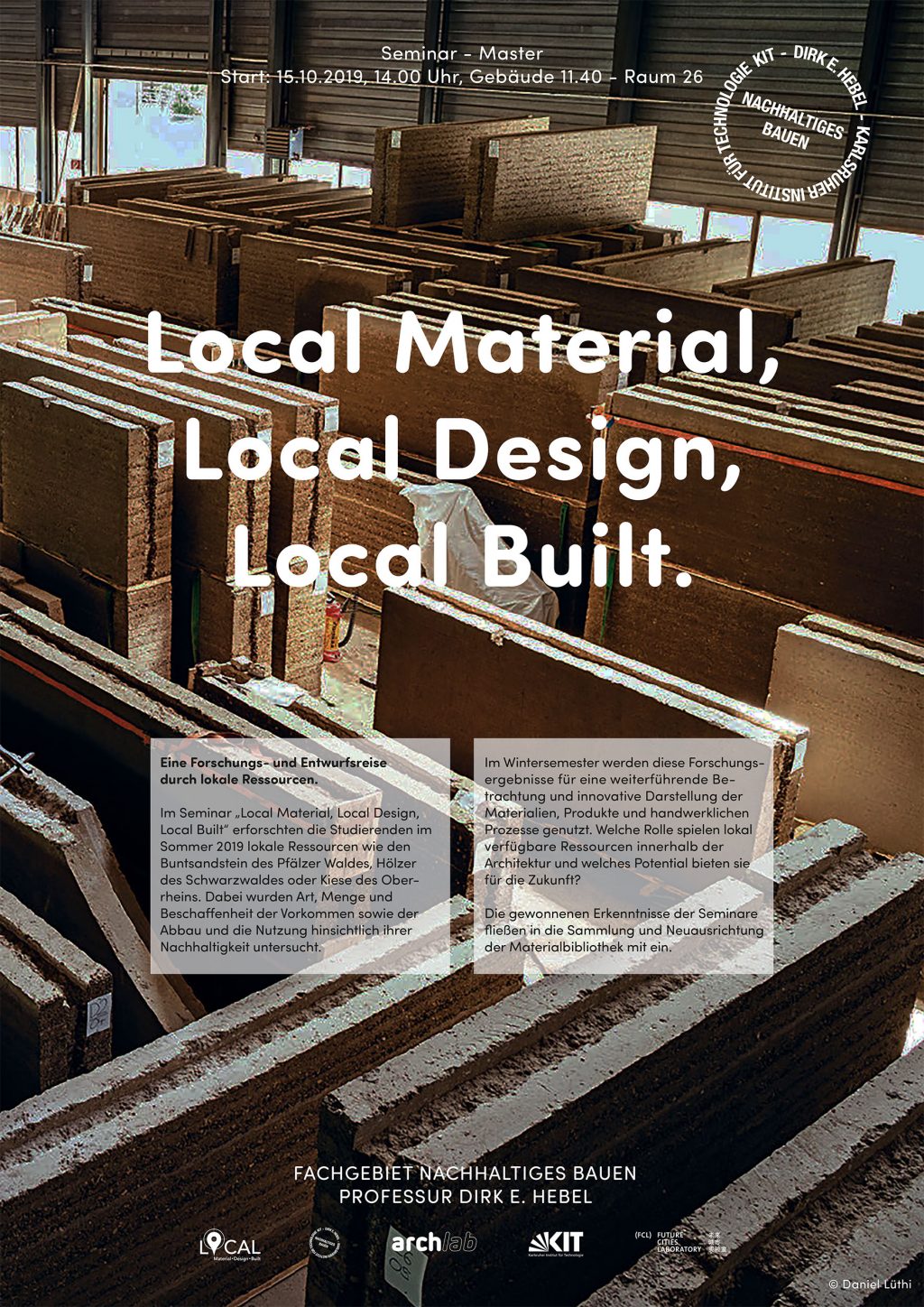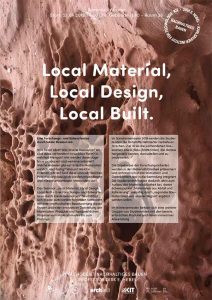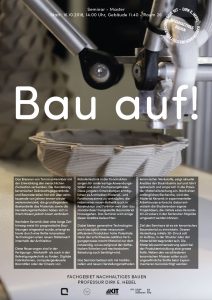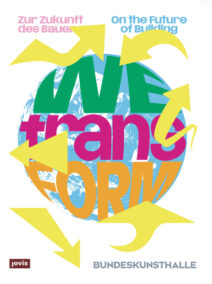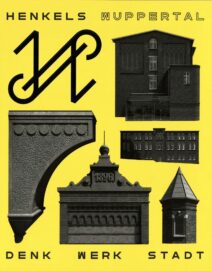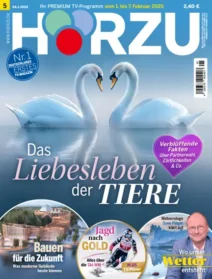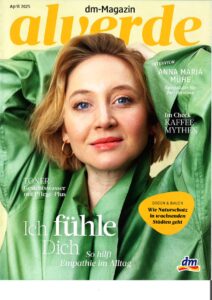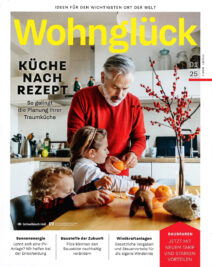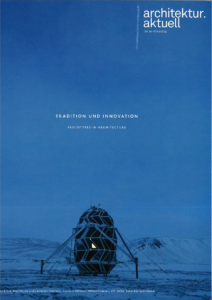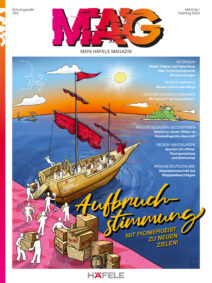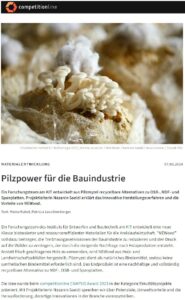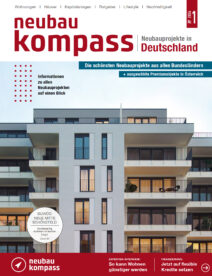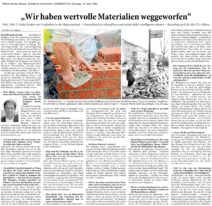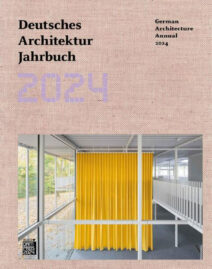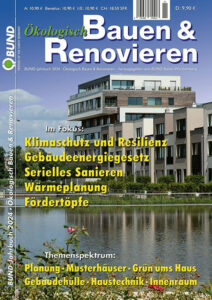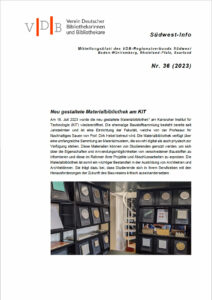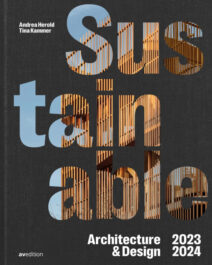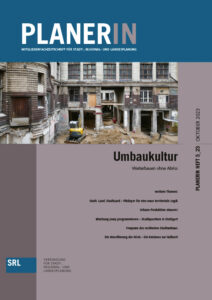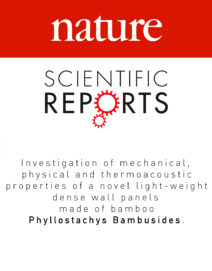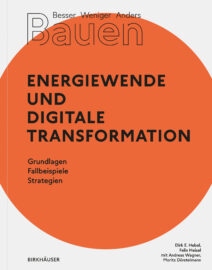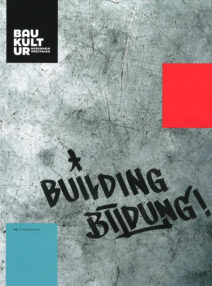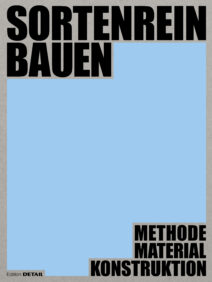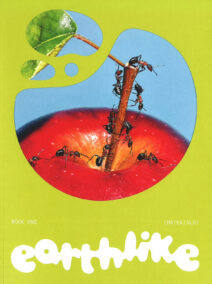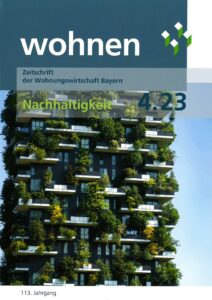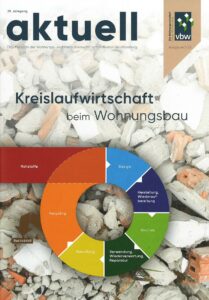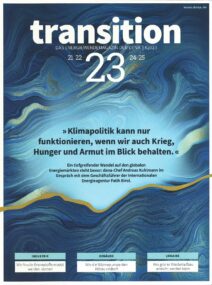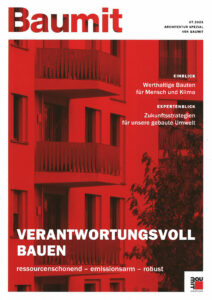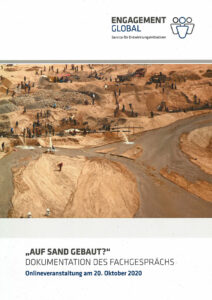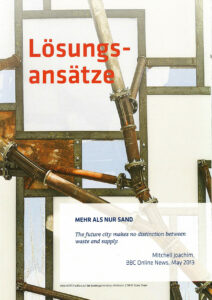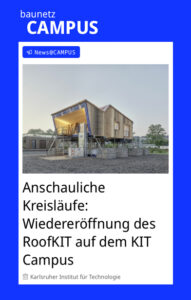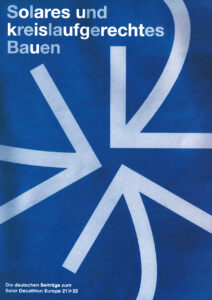Seminars
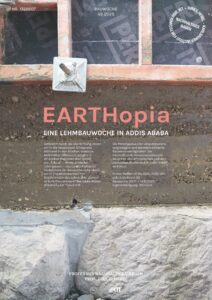
Summer Semester 2025
Sustainability: EARTHopia – A week of loam construction in Addis Abeba
We travel to Addis Ababa, the capital of Ethiopia. While modern architecture dominates the cities, the rural areas are traditionally characterized by “tukuls” – round, simple loam houses. A contemporary reinterpretation of this construction method is being developed as part of the Building Week: The “Tukul 2.0” combines the traditional architecture of Ethiopia with rammed earth technologies known in Europe.
In collaboration with students from the School of Built Environment (formerly EiABC) at Addis Ababa University, prototypes will be created that enable a more robust, durable and yet simple construction method. The focus is on the intercultural exchange of knowledge between Ethiopian and German students.
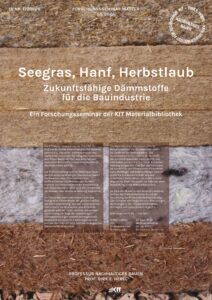
Summer Semester 2025
Research Seminar: Seaweed, hemp, autumn leaves – Future-oriented insulation materials for the building industry. A research seminar of the KIT Material Library.
The materials library houses conventional building materials as well as recyclable building materials made from secondary and renewable raw materials. The seminar focuses on biological insulation materials, which serve both – thermal insulation and summer heat protection. Against the backdrop of climate change and the resulting high relevance of an optimized building envelope, the opportunities and limitations of these insulation materials are examined.
Students will conduct independent and critical research on selected insulation materials, aiming to present sustainable alternatives based on detailed data sheets and physical material samples. The seminar will be accompanied by supervision, workshops, lectures, and excursions.
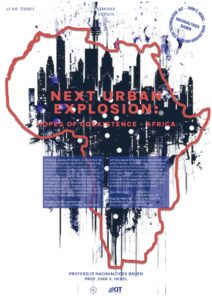
Summer Semester 2025
Seminar: Next Urban Explosion: Hopes of Coexistence – Africa
Cities are spaces of complex co-existence. Be it among ourselves or with the multiplicities of elements of nature, the question of co-existence is increasingly challenged by our collective actions. In our experiment to find a hopeful and sustainable way of coexistence, the continent of Africa offers a vast space of enquiry. In just 25 years, close to a billion additional people are expected to claim the hope that urban living offers in Africa. Such a mass of need creates a vast opportunity to reimagine new forms of urbanism.
Recognizing the vastness and multidimensionality of Africa, the seminar will be a space of optimistic speculations on urban futures – a thought experiment based on discussions and projective exercises. By interrogating the practices of Architecture and Urban Design – through selected projects in Africa, the seminar also aims to sketch a Framework-of-Engagement that can help to ensure the relevance of architecture in the production of Hopeful-Urban-Futures.
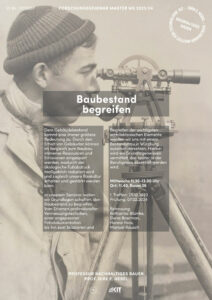
Winter Semester 2023/24
Seminar Master: Understanding the existing building stock
The building stock is becoming increasingly important. Through the preservation of buildings immense resources and emissions can be saved, which significantly reduces the ecological footprint and at the same time preserves and strengthens our building culture.
In our seminar we want to lay the basics for understanding the existing building stock. From learning professional measuring techniques and adapted photo documentation to sketching and understanding the most important architectural elements, we will look at an existing building in Würzburg. In the process, a basic knowledge is taught that will later become essential in professional practice.
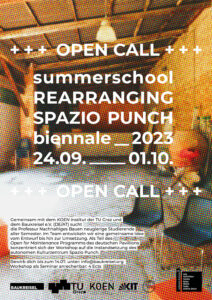
Winter Semester 2023
Summer School Rearranging Spazio Punch
The German contribution to this year’s 18th Architecture Biennale 2023 is dedicated to the themes of care, maintenance and repair entitled “Open for Maintanance_Wegen Umbau geschlossen”. This year, the German Pavilion is transforming into a productive infrastructure that promotes the principles of circular construction as well as the social responsibility of architecture. It serves to collect, catalogue, provide and process used materials from the previous Art Biennale. A workshop set up in the German Pavilion forms the working environment for various Venetian and international initiatives and universities that work with interventions to preserve and maintain socio-spatial structures on site.
Together with the KOEN Institute, the Graz University of Technology and the Baukreisel Association (Collective for Transformation and Design), we are organising a workshop week as part of the 1:1 Maintenance Programme to plan and implement an intervention. Together with the Venetian cooperative Spazio Punch, whose alternative exhibition space and creative meeting place is located on the island of Giudecca, we will design and maintain the place with small repairs and additions. We will have a fully equipped workshop and materials store at our service in the German Pavilion at the Biennale site.
The material collected from contributions to the past Art Biennale as well as the material stocks of Spazio Punch serve as a basis. The intention is to work on the existing material with small interventions and to create new details.
One of the many networks initiated by the curatorial team of the German Pavilion is the cooperation with Laboratori occupato Morion. They are making their building, not far from the Giardini, available to all participants as group accommodation.
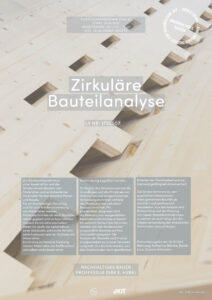
Winter Semester 2022
Circular component analysis
The deconstruction friendliness of a construction and the reusability of materials are decisive parameters for circular planning and building. For high-quality recycling and reuse of materials, material layers as well as components must be planned and installed in a detachable way.
The aim of the seminar is to determine the qualitative material value of a separated component and to present it graphically, as well as to find new joining techniques. From the analysis, conclusions are to be drawn for the planning of new circular component constructions as well as to show ways for the design of alternative joining techniques. The analysis of the components is planned in a group work of two persons each.
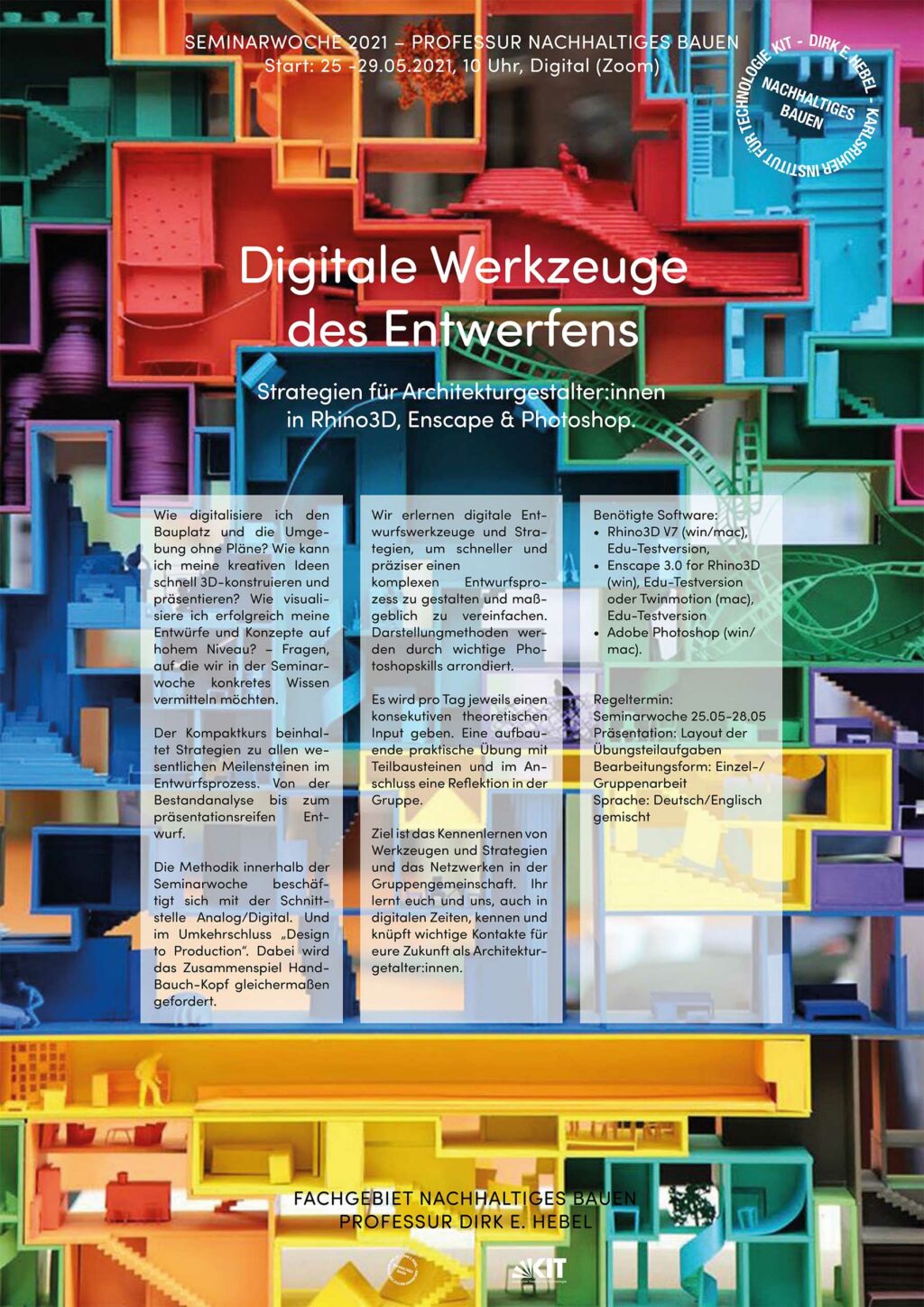
Summer Semester 2021
Seminar week: Digital tools within the design process
How to digitize the building site and surroundings without plans? How to quickly 3D construct and present my creative ideas? How to successfully visualize my designs and concepts at a high level? – Questions to which we would like to share specific knowledge during the seminar week.
The compact course includes strategies for all essential milestones in the design process. From the site analysis to the final draft ready for presentation.
The methods within the seminar week deal with the analog/digital transition. And, in reverse, “design to production”. The interplay between hand, gut and head is equally challenged. We will explore digital design tools and strategies in order to handle a more complex design process faster and to simplify it significantly. Visualization methods will be complemented with important Photoshop skills. There will be consecutive theoretical input per day. A hands-on exercise with partial modules and afterwards a reflection in the group.
The goal is to get to know tools and strategies and to network in the group community. You will get to know each other and us, even in digital times, and make important contacts for your future as architectural designer.
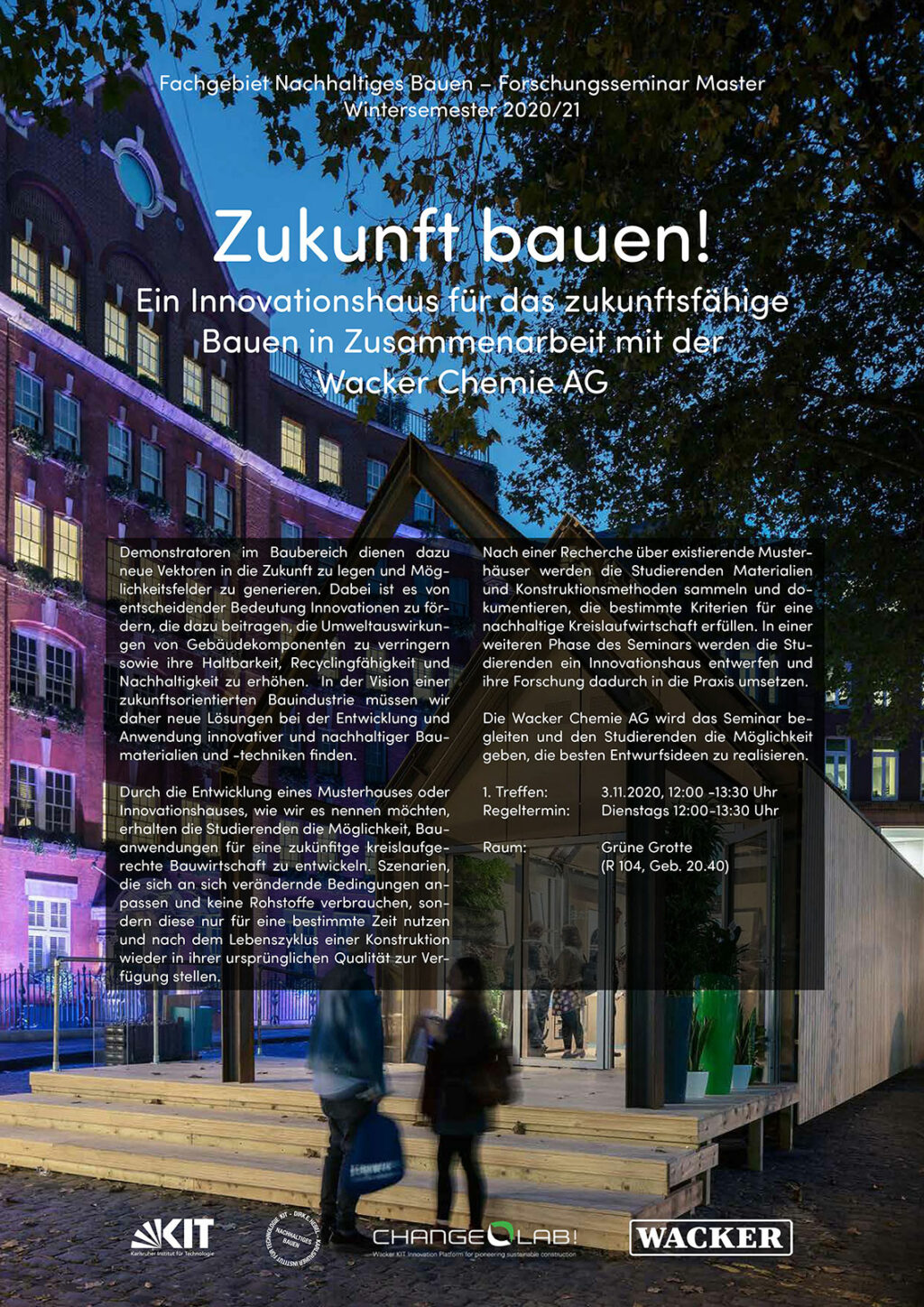
Winter Semester 2020
Building the future!
A demonstrator for sustainable construction in cooperation with Wacker Chemie AG
Demonstrators in the building sector serve to place new vectors into the future and to generate potential fields. It is vital that innovations are encouraged that will help to reduce the environmental impact of building components as well as increase their durability, recyclability and sustainability. In the vision of a future-orientated construction industry we have to find new solutions in developing and applying novel and sustainable construction materials and techniques.
By developing a demonstrator for the future building industry, the students get the chance to develop scenarios for construction applications for a circular construction economy. Scenarios that adapt to new conditions and do not consume raw materials, but only use it and return it to its original state after the life cycle of the construction. After a research on existing demonstrators the students will collect materials and construction methods which fulfil specific criteria for a sustainable and circular economy. In a further phase of the seminar, the students will design the demonstrator and bring their research into practice.
Wacker Chemie, as the collaborator of this seminar will give the students the opportunity to realize their best design concepts.
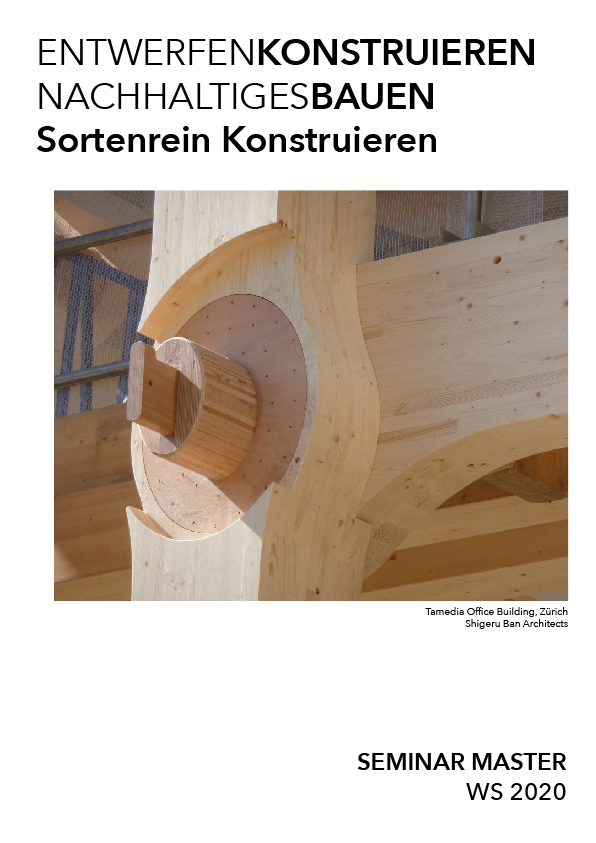
Winter Semester 2020
Circular Contruction Methods
In a joint seminar, construction methods are to be investigated and documented that can guarantee the future deconstruction of buildings by type and thus form the basis of cycle-based construction. At the beginning the basics and principles of joining and designing a future recycling economy will be taught. Based on this topic, historical and current construction methods will be examined, which can be deconstructed, reused or recycled after their use in the building.
The Seminar is a cooperation between Professership for Building Construction and Design, Prof. Luwig Wappner and the Professorship for Sustainable Construction, Prof. Dirk E. Hebel.
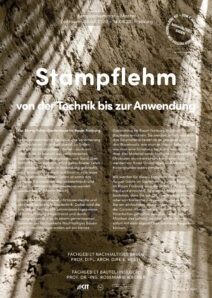
Summer Semester 2020
Rammed earth – from technology to application
Joint seminar of the Professorships of Building Technology, Prof. Rosemarie Wagner and Sustainable Construction, Prof. Dirk E. Hebel
In a joint seminar, the basics and principles of building with rammed earth are taught. In a first approach on a theoretically level and built examples. Based on this, practical exercises and the teaching of applied techniques in loam are taught in practical steps. Finally, the course offers the opportunity to create a real object near Freiburg in the form of an intense workshop on site.
More Information (Reader) here.
Winter Semester 2019
Local Material, Local Design, Local Built
In the seminar “Local Material, Local Design, Local Built” the students did an intensive research in local resources such as the Buntsandstein of the Pfälzer Wald, wood from the Black Forest or gravel along the Upper Rhine. The type, quantity and composition of the resources, as well as their extraction and use, were investigated with regard to their sustainability. In the winter semester, these research results will be used for further consideration and innovative presentation of the materials, products and craft processes. What role do locally available resources play within architecture and what potential do they offer for the future? The insights gained in the seminars are integrated into the collection and reorganization of the material library.
Summer Semester 2019
Local Material, Local Design, Local Built
A Research through Local Resources. What is local? What is a resource? Where are resources available? In which forms and quantities? How are they mined, produced and processed? Which suppliers are there? Are the materials really sustainable? What are the criteria? Are they useful? What is the potential of reusable and recyclable materials?
In two consecutive semesters, the seminar “Local Material, Local Design, Local Built – A Research and Design Journey through Local Resources” deals with methodical answers to these questions and an innovative representation of the materials, products and craft processes from the material sample to the prototype.
Winter Semester 2018
Build up!
Innovative building materials through ceramic 3D printing
After having been used for a long time for pragmatic construction solutions, ceramics are now gaining a new significance within architecture, thanks to a series of innovative technologies. Digital fabrication, computer-controlled burning kilns or the use of robotics in the construction of buildings have led to different fields of application and appearances. These latest developments enable architects to link material and functional systems which go far beyond the standard building material in terms of construction, function and aesthetics.
Generative technologies also offer high potential in terms of resource-efficient production. This is because the additive manufacturing process only makes material necessary where it is required due to aesthetic criteria and mechanical stress.
The seminar deals with traditional and new manufacturing methods for ceramic materials, shows current approaches in the construction industry and introduces material research in a playful and empirical way. After an initial research, the material ceramics will be researched in an experimental way. The aim is to develop a ceramic building material that can be printed using a ceramic 3D printer in Karlsruhe’s Majolika.
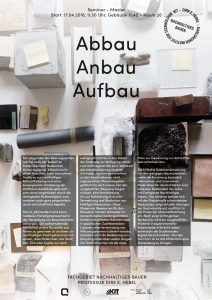 Summer Semester 2018
Summer Semester 2018
Abbau / Anbau / Aufbau
Mit steigenden Bevölkerungszahlen wächst auch der Bedarf an Materialien und Ressourcen immer weiter an. Aktuell wird in vielen Branchen nach innovativen Ansätzen zur nachhaltigen Rohstoffnutzung und einer konsequenten Schließung der stofflichen Kreisläufe geforscht – zum einen angetrieben durch die ökologische Notwendigkeit, zum anderen auch ganz pragmatisch durch wirtschaftliche Aspekte.
Das 21. Jahrhundert wird einen radikalen Paradigmenwechsel in der Herstellung von Baumaterialien verlangen. Die vorherrschende Mentalität unsere Baustoffe aus Minen zu gewinnen ist an einen un-nachhaltigen Punkt gekommen: wir wissen, dass Materialien wie Sand, Blei, Zink oder Kupfer nur noch wenige Jahrzehnte in den Minen der Erdkruste zur Verfügung stehen und nicht regenerativ sind. Während die Industrialisierung zu einer Umwandlung von regenerativen zu den beschriebenen nicht regenerativen Materialquellen geführt hat, wird unsere Zeit den umgekehrten Weg einschlagen müssen: eine Verschiebung hin zur Kultivierung, Aufzucht, Vermehrung und Wachstum von künftigen Ressourcen. Diese Klasse von Ressourcen für den Bausektor können entweder im konventionellen bodengestützten landwirtschaftlichen Rahmen oder in spezifischen Zuchtbetrieben/Laboren unter Verwendung von Mikroorganismen kultiviert werden. Daneben wird die Bedeutung von Recyclingmaterialien weiter steigen. Die Stadt muss hier als die neue Mine zur Gewinnung von Rohstoffen betrachtet werden.
Die kritische Auseinandersetzung mit den gängigen Baumaterialien sowie die Forschung bezüglich alternativen und innovativen Materialien für die Architektur sind konkreter Bestandteil der Lehre am Fachgebiet Nachhaltiges Bauen. Das Seminar befasst sich mit der Problematik schwindender Ressourcen, zeigt aktuelle Lösungen der Bauindustrie auf und führt in die Praxis der Materialforschung ein. Nach einer anfänglichen Recherche, wird ein ausgewähltes Material in experimenteller Arbeitsweise erforscht, dabei entwickeln die Studierenden eigene Versuchsreihen. Ziel des Seminars ist es das Material in eine Anwendung zu bringen.
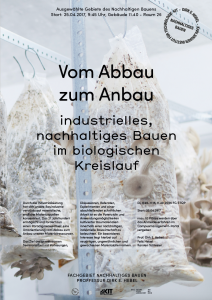
Wintersemester 2017/18
From Mining to Cultivation
Durch die Industrialisierung hat sich unsere Bauindustrie verstärkt auf mineralische, endliche Materialquellen konzentriert. Das 21. Jahrhundert ermöglicht und fordert nun einen Paradigmenwechsel: eine Umorientierung vom Abbau zum Anbau unserer Materialressourcen. Das Ziel der gemeinsamen Seminararbeit mit Vorlesungen, Diskussionen, Referaten, Experimenten und einer abschließenden schriftlichen Arbeit ist es die Potenziale und Anwendungsmöglichkeiten kultivierter Baumaterialien innerhalb einer nachhaltigen, industrielle Bauwirtschaft zu beleuchten. Ein besonderes Interesse liegt hierbei auf neuartigen, ungewöhnlichen und gewachsenen Materialalternativen.

Fall Semester 2012 FCL Singapore
Constructing Waste
Hundreds of tons of waste are produces in Singapore every day. These wastes represent an invaluable pool of resources, which could be activated by rethinking their designs. The ‘hands on the material’ seminar CONSTRUCTING WASTE will interrogate the concept of up-cycling strategies in order to minimize the overall refuse amount being produced in Singapore. The focus on design questions should create second life cycles for otherwise waste products.
